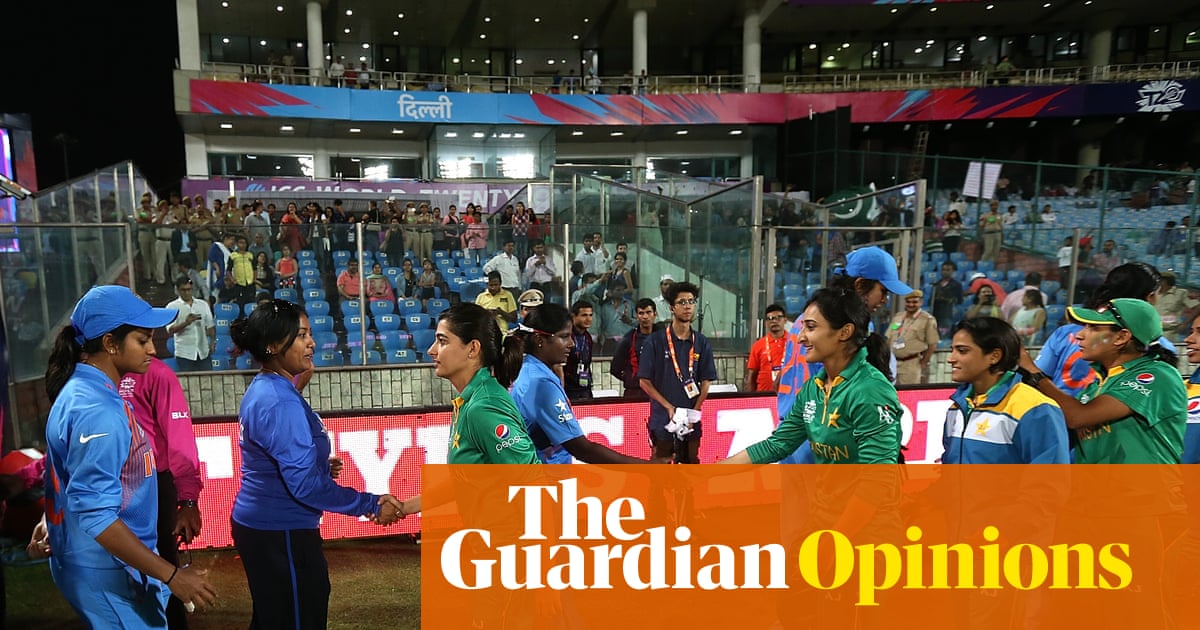
"It is mere years that women in the subcontinent have been taken seriously as cricketers. For generations, they faced scorn, disapproval, ostracism even the threat of violence to pursue their passion. Now India is hosting a World Cup in which the prize fund is $13.8m (10.3m) and the home nation's players will become national treasures if they secure their first tournament victory. It would, then, be a travesty if this weekend's talk focused on their male counterparts."
"And yet, when India face Pakistan on Sunday, comparison is unavoidable. And not because the home side are highly favoured to triumph, but because they are not expected to shake hands with their opposition. Handshakegate, if we must call it that, will have a fourth instalment. If you missed the original drama, it came at the end of the men's group match between India and Pakistan at the Asia Cup last month when the India captain, Suryakumar Yadav, and his team disappeared off the field to avoid the usual friendly post-match ritual. Two same-y sequels followed in the Super4 match and the final, climaxing in a long-delayed presentation ceremony where the new champions refused to accept the trophy from the Pakistan Cricket Board's chair, Mohsin Naqvi."
Women in the subcontinent endured scorn, disapproval, ostracism and threats of violence for generations to play cricket. India is hosting a women's World Cup with a $13.8m prize fund and the home players stand to gain national hero status with a first tournament victory. Public attention, however, risks centring on a recurring India-Pakistan handshake controversy after multiple men's matches featured teams avoiding the usual post-match ritual. A handshake between Harmanpreet Kaur's players and Pakistan's team could have provided a symbolic counterpoint, underscoring female solidarity and the transient nature of politics compared with sporting bonds.
Read at www.theguardian.com
Unable to calculate read time
Collection
[
|
...
]